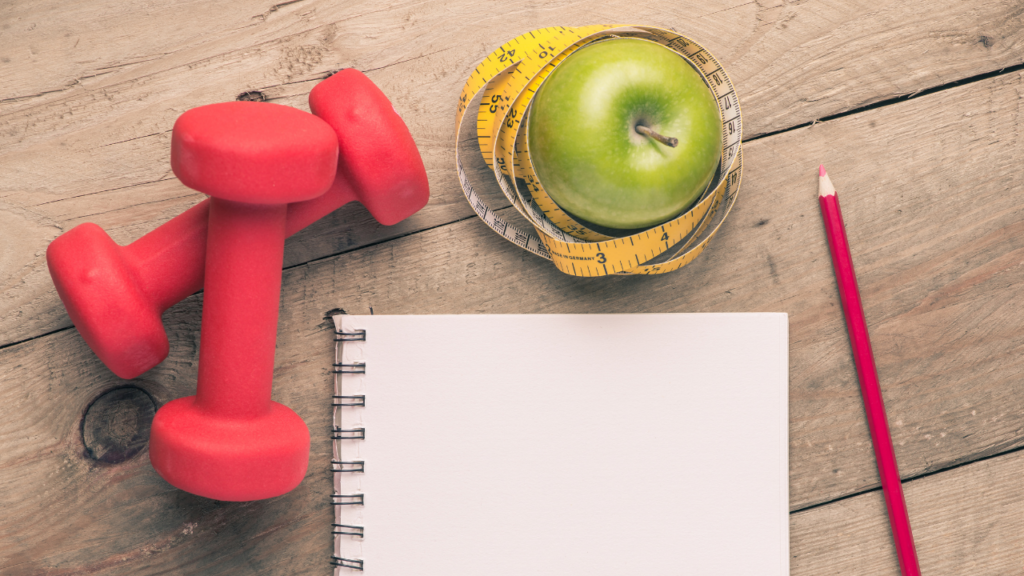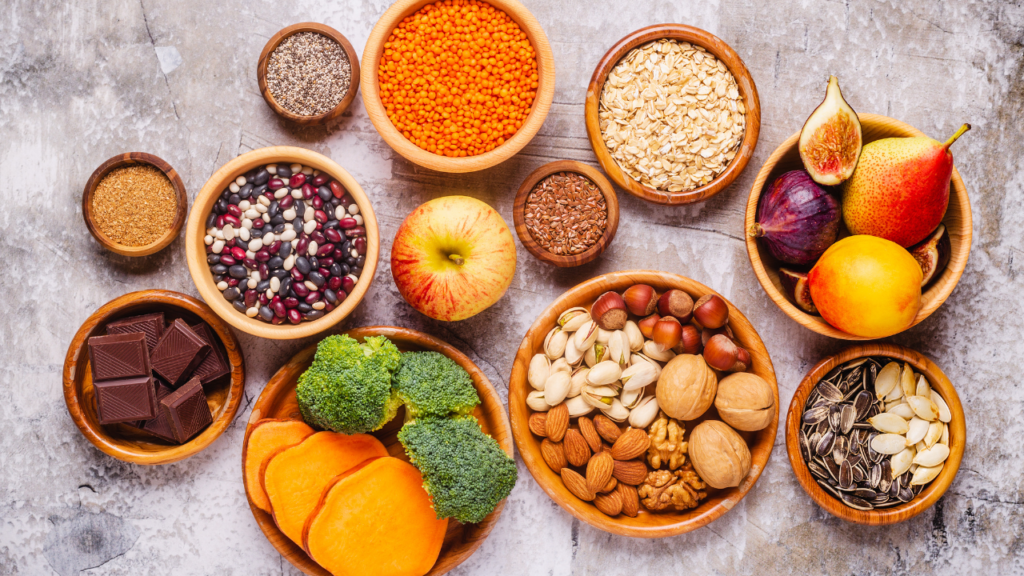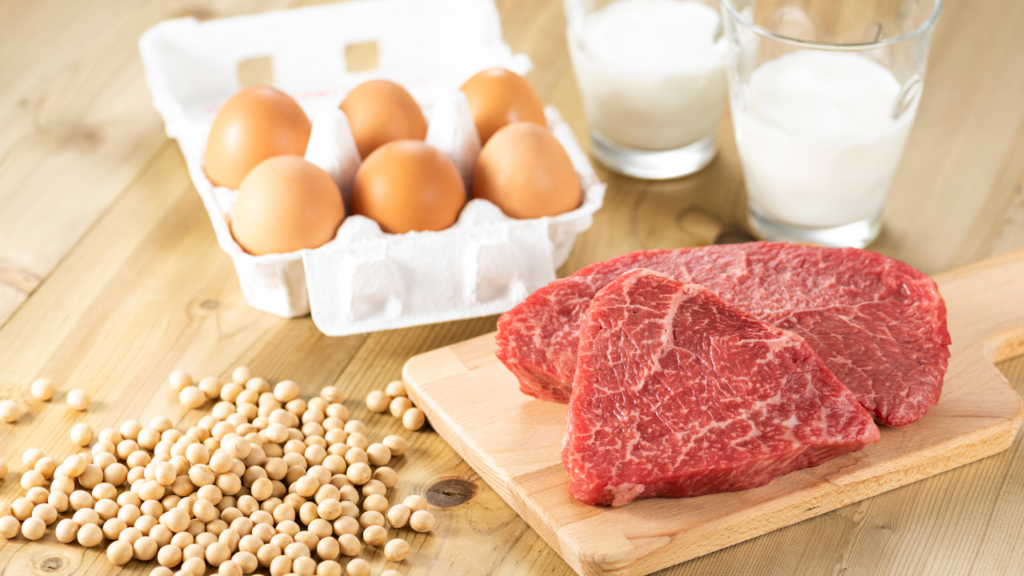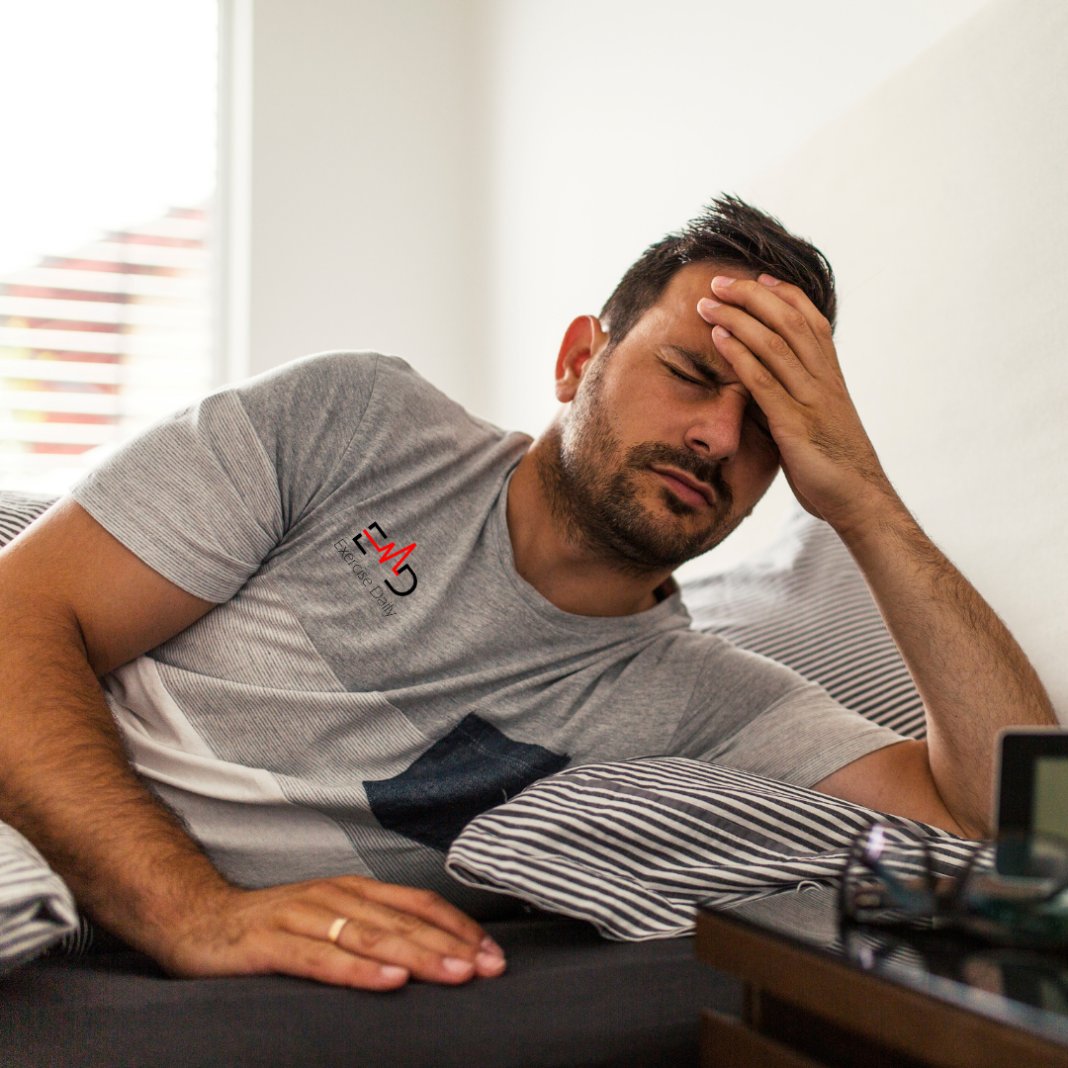Exercise Daily – Have you ever wanted to lose weight, and do you know how long does it take to lose 100 pounds? It’s crucial to remember that reducing 100 pounds will most likely take at least 6 months to a year!
Generally speaking, doctors advocate losing weight at a modest but regular pace. This can be losing 1–2 pounds (0.5–1 kg) of fat every week, or around 1% of your total weight per week.
The expectation is that persons who start out with a greater body weight will lose more weight. The pace of weight reduction, on the other hand, tends to be comparable in terms of percentage.
Over the course of the first two weeks of dieting, a person weighing 300 pounds (136 kg) may drop up to 10 pounds (4.5 kg). Meanwhile, a person of the same age and gender weighing 160 pounds (73 kg) may only lose 5 pounds (2.3 kg).
When you initially begin a weight reduction program, especially one including a low-carb diet, it’s fairly usual to see faster weight loss.
This is most usually caused by a decrease in water weight in the body. When your body expends more calories than it eats, it draws on its stored energy reserves, such as glycogen.
Glycogen molecules are tightly bound to water. Therefore, when the body consumes glycogen, the attached water is released. Despite the fact that the majority of people desire to lose weight rapidly, it is critical not to lose too much weight too soon.
Hazards of Rapid Weight Loss
Before we talk about how long does it take to lose 100 pounds, we should know the dangers of rushing into it. Rapid weight loss may be associated with a number of health hazards, including the following:
- Malnutrition
- Gallstones
- Dehydration
- Fatigue
- Hair thinning
- Decrease of muscular mass
- Constipation
- Menstrual irregularities
For many who are just starting on their weight loss journey, the prospect of dropping 100 pounds (45 kg) or more may seem overwhelming. Fortunately, there are tactics that have been demonstrated to work in the past.
Here are some strategies to help you drop 100 pounds in a safe and healthy manner.
Keep a log of your calorie consumption
To lose weight, your body must burn more calories than it eats in order to do this. There are two methods to do this: either by consuming fewer calories or by increasing physical activity.
When you keep track of your calorie intake, you may keep track of how many calories you eat on a daily basis. This allows you to determine if you are on track or whether you need to make changes.

The quantity of calories you need to eat each day depends on a variety of variables. These include your beginning weight, lifestyle, sexual preference, and degree of exercise.
The two most prevalent methods of keeping track of calorie consumption are via the use of an app and keeping a food diary. In this way, you can have a better insight into how long does it take to lose 100 pounds.
It is important to remember that simply tracking calorie intake may not be the most sustainable way to lose weight. You have to combine calorie monitoring with healthy lifestyle improvements. This includes eating more veggies or exercising on a regular basis.
Increase your consumption of fiber
Fiber is a form of carbohydrate that is not digested and may help you lose weight. This is due to the fact that fiber slows the pace at which the stomach empties its contents. Hence, it may help you feel fuller for a longer period of time.

Furthermore, soluble fiber lowers the synthesis of hunger hormones, such as ghrelin. At the same time, it increases the production of fullness hormones, such as cholecystokinin (CCK), glucagon-like peptide 1 (GLP-1), and peptide YY, in humans (PYY).
Fiber, by suppressing your hunger, may assist you in lowering your calorie intake, resulting in simple weight reduction.
Most vegetables, fruits, nuts, whole grains, and seeds are rich in fiber, as are the majority of other foods. Alternatively, you might consider taking a fiber supplement such as glucomannan to help you feel fuller longer.
Increase your consumption of protein-rich foods
It is critical to increasing your protein consumption if you want to shed 100 pounds. Diets rich in protein increase metabolic rate, suppress hunger, retain muscle mass, and may even help you lose dangerous belly fat if you follow them.

Merely eating a higher protein diet will help you burn an extra 80–100 calories each day. Hence, you know how long does it take to lose 100 pounds. Within 12 weeks of eating a diet high in protein, women with excess weight shed an average of 11 pounds (5 kg). This is, without having to reduce their calorie consumption in any way.
Furthermore, a higher protein diet may aid in the prevention of weight regain.
Choosing healthy foods, such as meats, shellfish, eggs, nuts, seeds, and legumes, is a wonderful strategy to improve your protein consumption. Moreover, it significantly reduces your risk of chronic disease.
Reduce your intake of refined carbohydrates
Reducing your consumption of refined carbohydrates is an excellent method of losing weight. In addition to sugar and refined grains that have been stripped of minerals and fiber during processing, try consuming simple carbohydrates.
White bread, white flour, spaghetti, sweets, and pastries are all examples of refined carbohydrate foods to consume.
Read: Does Bread Make You Fat?
Refined carbohydrates are not only a poor source of nutrients, but they also have a high glycemic index. This makes them a bad choice for diabetics. This implies that they are digested and absorbed in a short time period.
You might suffer from increased appetite and hunger, as well as an increased risk of overeating, as a result of these fast rises and falls in blood sugar levels. Therefore, when we talk about how long does it take to lose 100 pounds, you need to stay consistent and avoid refined carbs.

A larger diet of refined carbohydrates has also been associated with carrying more visceral fat. This is a form of fat that increases the risk of chronic illnesses such as heart disease.
It’s also a good idea to limit your intake of sugary beverages such as soda, juice, and energy drinks. These drinks are often high in sugar and calories, deficient in other nutrients, and may lead to weight gain over time. Moreover, they do so while providing little nutritional value.
Instead of refined carbohydrates, try to replace them with whole-grain alternatives. Some of the whole grain alternatives include brown rice, quinoa, couscous, and whole-grain bread, or with meals that are rich in protein.
Consume plenty of veggies
Apart from the fact that veggies are nutritious, they possess other characteristics that might aid in weight loss.
For starters, veggies are an excellent source of fiber. Fibers may help to delay the pace at which the stomach empties. This boosts sensations of fullness in the stomach.
In addition, vegetables have a high water content, which results in a low-calorie density when compared to other foods. This suggests that vegetables have a low-calorie content relative to their weight.
When you consistently choose low energy density meals, such as vegetables, you may consume the same amount of food. This helps while reducing your calorie consumption by a significant amount.
Increase your cardiovascular activity
When it comes to shedding a significant amount of weight, exercise is essential. Exercise determines how long does it take to lose 100 pounds. Cardiovascular exercise, often known as aerobic exercise, is a common kind of physical activity. This helps burn calories while simultaneously promoting cardiovascular health.
Cardio may aid in the burning of dangerous abdominal fat, which is also known as visceral fat, as well as other types of fat. This kind of fat is found in the abdominal cavity and is associated with an increased risk of type 2 diabetes, heart disease, and some malignancies, among other health problems.
If you are not accustomed to doing cardio, begin by walking more regularly over the week and gradually increasing your frequency until you are jogging or running as you get more comfortable.
If you find that walking is too taxing on your joints, consider low-impact cardio workouts such as water walking or cycling instead.
Experiment with resistance exercise
Resistance exercise, often known as weight lifting, aids with weight reduction. It entails exerting power against resistance in order to increase muscular strength and endurance. You can perform it with your bodyweight alone, even though it’s more typical to use weights for this task.
Resistance training may help you lose weight by modestly raising your metabolism, which causes your body to burn more calories even when you’re not exercising. On the other hand, 9 months of regular weight lifting boosts the number of calories they burn at rest by an average of 5%
While going to the gym is the most convenient method to get started, you may also do resistance training exercises at home.
Squats, lunges, sit-ups, and planks are examples of resistance training exercises. If you are confused about how long does it take to lose 100 pounds, keep reading!
If you have never gone to the gym before, you should consider hiring a personal trainer to guide you through the process of learning how to use the equipment safely and effectively while reducing your chance of injury.
Make an effort to exercise three times each week
Getting your 100-pound weight reduction target accomplished will need a lot of physical activity.
You may be delighted to learn that by exercising for 15 to 20 minutes three times a week for roughly 15 to 20 minutes, you can burn a significant amount of fat and get a genuinely significant outcome.
Any increase in physical activity can help you burn more calories. However, getting in a good, hard exercise a few times each week will help you lose much more weight.
The most essential thing to remember is to select an activity. It must be appropriate for your body type as well as your personality and preferences.
Walks are a great way to unwind. So go on walks!
If you like cycling and aerobic workouts, they are the kind of activities that will motivate you to be active on a regular basis.
In addition to being an incredibly powerful fat burner, lifting weights is also a a lot of fun. It is especially beneficial for obese individuals since you can do it without straining your legs. Moreover, in this way, you do not need strenuous exercise to lose weight.
In the same way that eating nutritious foods is important, consistency in exercise is essential. Don’t be concerned if your workout program is anything less than ideal.
Forget how long does it take to lose 100 pounds, just stay consistent. If you are willing to accept the fact that you are far from flawless, you will experience an incredible transformation!
Incorporate mindful eating into your routine
It is important to practice mindfulness and be present in the moment when you eat, as well as be aware of your bodily and psychological hunger signals, and to pay attention to your emotions while you eat.
The practice of mindful eating may be accomplished in a variety of ways, but the most frequent are as follows: eating slowly, digesting food fully, and avoiding distractions while eating such as your phone, internet, or television.
Eating slowly — a mindful eating technique — might help you eat less while still feeling fuller and more content, resulting in weight loss.
Seek the advice of a dietician
When attempting a significant weight reduction goal, such as losing 100 pounds, it is highly recommended that you get the assistance of a certified specialist, such as a licensed dietitian.
A dietician assists you in determining the most effective strategy to reduce extra fat without being too restricted. Moreover, they can also provide you with ongoing support throughout your journey.
Your dietician might give you insights on how long does it take to lose 100 pounds. Working with a dietician throughout your weight loss journey may result in much greater weight reduction than doing it alone, as well as assisting you in maintaining your weight loss after you have lost weight.
Obtaining the advice of a nutritionist is particularly crucial if you have a medical condition that is difficult to manage. A dietician can guarantee that you lose weight in a safe and healthy manner, without jeopardizing your health in any way.
Be responsible for your actions
When it comes to achieving a long-term goal such as shedding 100 pounds, willpower alone is not always sufficient to assure success.
It is at this point that accountability is critical. It assists you in staying on track for weight reduction success. Moreover, it enables you to make modifications along the road.
Weighing oneself on a more regular basis is one method of being responsible. Persons who weigh themselves more regularly are more likely to lose weight and keep it off. However, those who do not weigh themselves as frequently are less likely to reduce it. In this way, you can finally have an idea about how long does it take to lose 100 pounds.
Keeping a meal diary is another effective method of staying responsible. It enables you to keep track of your food consumption. As a result, it assists you in losing weight and keeping it off for a longer period of time.
Finally, you may consider forming a weight loss partnership with a buddy who shares your objectives. Alternatively, join an in-person or online weight reduction support group. Not only will this assist you in reaching your objective, but it will also make things more enjoyable. This is a great way to keep you motivated.
Do you think it will help to combine diet with exercise?
Making a commitment to eating healthfully every day and exercising regularly a few times per week is critical. Losing weight as fast and easily as possible and achieving your weight reduction goal are important.
Doing all of these things at the same time may seem to make your journey more difficult. However, combining a healthy diet with regular exercise helps you to get the quickest and greatest results possible. Moreover, it makes your weight loss journey much more enjoyable.
Eating a nutritious low-calorie diet and exercising are both efficient techniques for weight reduction. They often serve as “stand-alone treatments.” However, the most successful outcomes followed a diet and exercise regimen together.
Frequently Asked Questions
How many weeks will it take to lose 100 pounds?
A pound of fat has around 3,500 calories. To lose two pounds a week, you must expend 7,000 calories more than you consume in a given week. To lose 100 pounds at a pace of two pounds per week, it would take you up to 50 weeks to reach your desired weight of 100 pounds.
Will losing 100 pounds cause loose skin?
Dropping a significant amount of weight – say, 100 pounds or more in a short period of time results in loose skin. Weight-loss surgery patients are more likely than the general population to have this complication after their procedure.
How do you keep skin tight when losing weight?
One of the most effective strategies to maintain your skin tight throughout and after weight reduction is to drink enough water every day. The amount of water in your skin has a significant influence on its suppleness.
A basic skin care program may go a long way toward preventing drooping skin from developing.
How much weight can you lose in 3 months?
The majority of health professionals suggest that you lose no more than 1 to 2 pounds every week. At a rate of around one pound per week, you may expect to lose approximately 12 pounds over the course of three months.
If you lose 2 pounds each week, you may drop up to 24 pounds in three months if you follow a healthy diet and exercise regimen.
Do you lose weight faster if you are overweight?
Yes, persons who are obese lose weight more quickly than those who are lighter. According to the laws of physics, a heavier object moving the same distance as a lighter object will need more effort, and vice versa. The same concept applies in this case.
Conclusion
When you lose 100 pounds, you don’t just feel better about yourself and have a bit more energy; you have a whole new outlook on life!
Make little modifications to your daily routine. You will find yourself looking at yourself in the mirror for the first time as a completely different person.
The benefits of diets and exercise routines progressively build up over time. It includes the ability to notice results while also being confident in your ability to maintain the improvements.
Share your weight loss journey in the comments section below, and let people know what helped you!



